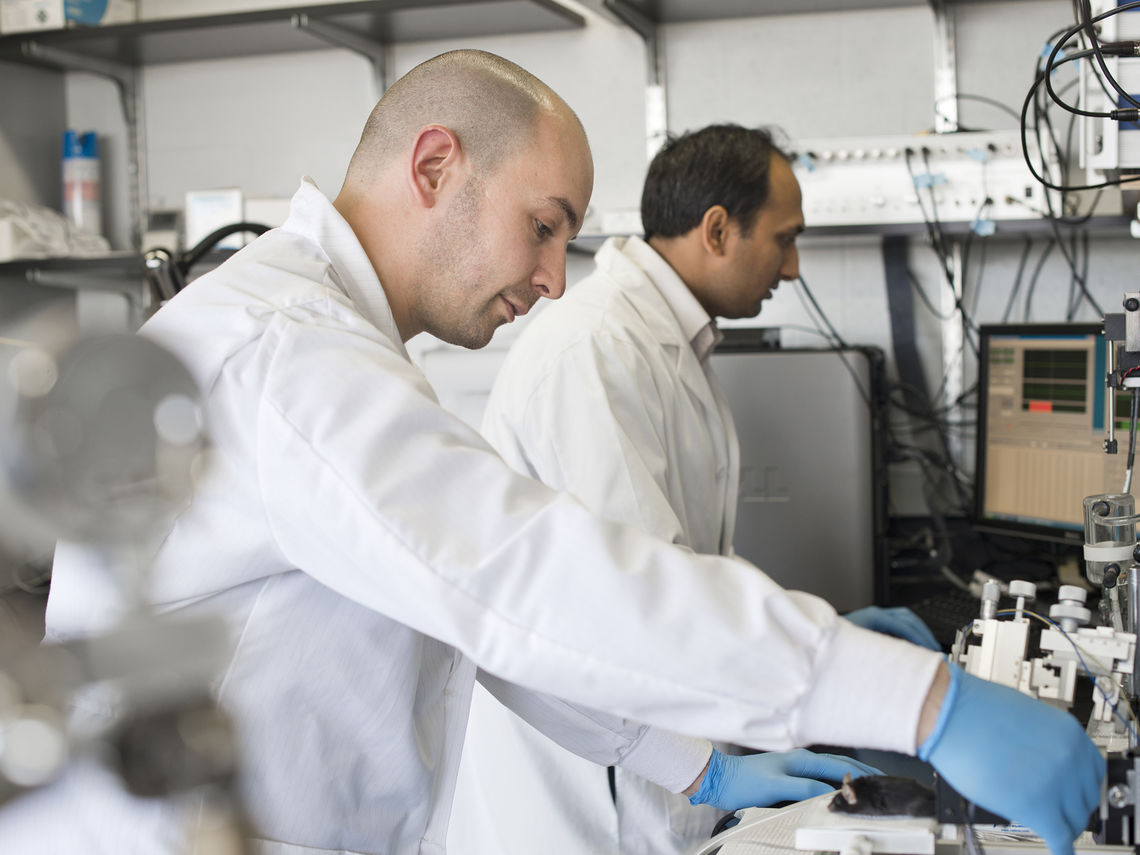Research
Department of Physiology at The University of Pennsylvania
Research Areas:
-
Cytoskeleton, Motor Proteins and Cell & Organellar Motility
The cytoskeleton and its associated molecular motors make up the fundamental cellular machinery that is crucial for the structural development, shape, and remodeling of tissues and organs. Cytoskeletal proteins and related signaling pathways are also crucial for powering cell migration and controlling the organization and transport of internal cell compartments. Members of the department use a range of single-molecule, structural, and cellular techniques to investigate the cytoskeleton in health and disease.
-
Integrative Physiology & Metabolism
Metabolism encompasses the biochemical reactions by which molecules are incorporated, transformed, and destroyed by living organisms. This includes the core processes that convert nutrients into energy, renew tissues, and allow the most fundamental feature of life: replication. Strengths of the department include respiratory physiology, adaptations to nutrient restriction or excess, and the control of mitochondrial energy production.
-
Signal Transduction
Signal transduction occurs when an extracellular molecule activates a cell surface receptor, which in turn alters intracellular molecules creating a response. Members of our faculty use a range of imaging, structural, electrophysiological and biochemical approaches to study receptors and intracellular and extracellular signals and their roles in the cardiovascular system, skeletal muscles, epithelia and the nervous system in normal physiology and in pathological conditions including cancer, bioenergetic insults and genetic diseases.
-
Skeletal, Cardiac, and Smooth Muscle
Members of our department are leaders in a comprehensive range of basic and translational muscle research. Our research teams are (a) determining the molecular mechanisms by which muscle proteins convert chemical energy to mechanical work, (b) discovering the signaling pathways that initiate and relax muscle contraction, (c) exploring pathogenesis of debilitating muscle diseases, and (d) developing therapies to treat skeletal and cardiac muscle disease. Many faculty are also part of the Pennsylvania Muscle Institute.
-
Transmembrane Transport
Transport proteins, including pumps, transporters and ion channels are integral membrane proteins that function in facilitating the translocation of solutes across plasma membranes as well as membranes of intracellular organelles. Transport proteins establish intra- and extracellular solute concentrations, generate membrane potentials and electrical signals, control the flow of solutes across epithelia and regulate cell volume. Members of our department are leaders in a many areas of basic and translational solute transport research. Our research teams are (a) determining molecular mechanisms by which channels select the ions that can flow through them, (b) identifying structural and molecular influences that regulate how ion channels open and close, (c) discovering transport mechanisms that maintain ionic and fluid homeostasis properties in various organs, including lungs and eyes, (d) exploring biogenesis of transport proteins, (e) and exploring physiological roles of solute transport in various normal and pathophysiological conditions, including cystic fibrosis and Alzheimer’s disease.

